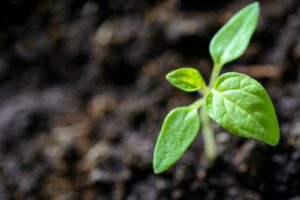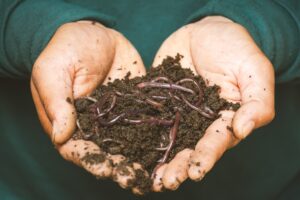Beneath our feet lies a hidden treasure that sustains life on Earth: soil. Often overlooked, soil is a precious resource that plays a vital role in supporting human well-being, ensuring food security, and maintaining healthy ecosystems. However, the importance of soil quality is often underestimated or ignored. In this article, we will explore the significance of soil quality and the urgent need for increased awareness and action to protect and enhance this invaluable resource.
Nurturing Human Well-Being
Healthy soil is the foundation of a healthy and thriving society. Soil acts as a reservoir for water, storing and filtering it, which contributes to clean and accessible water resources for human consumption. It also serves as a habitat for beneficial microorganisms that aid in nutrient cycling and decomposition, playing a crucial role in regulating disease-causing organisms in the environment. Additionally, soil serves as a platform for recreational activities, providing spaces for gardening, farming, and outdoor recreation that contribute to physical and mental well-being.
Ensuring Food Security
Soil is the lifeline of agriculture and essential for global food security. It provides vital nutrients and water to support plant growth and crop productivity. However, the quality of soil directly impacts agricultural productivity. Degraded soil leads to reduced crop yields, lower nutritional quality, and increased vulnerability to pests, diseases, and climate change impacts. By promoting healthy soil ecosystems through sustainable agricultural practices, such as organic farming, agroforestry, and conservation agriculture, we can enhance food production, improve crop resilience, and ensure a sustainable and secure food supply for present and future generations.
 Supporting Ecosystem Health
Supporting Ecosystem Health
Soil quality plays a critical role in maintaining healthy ecosystems and biodiversity. It serves as a habitat for a wide array of organisms, including insects, worms, fungi, and bacteria, which contribute to nutrient cycling, soil structure, and the overall functioning of ecosystems. Healthy soils support diverse plant communities, which, in turn, provide habitats and food sources for a variety of animal species. Moreover, soil acts as a carbon sink, storing significant amounts of carbon, thus helping to mitigate climate change. Preserving and enhancing soil quality is essential for maintaining ecosystem resilience and safeguarding the services they provide, such as water purification, pollination, and carbon sequestration.
Protecting Against Soil Degradation
Unfortunately, soil degradation is a growing concern worldwide. Unsustainable land management practices, deforestation, overuse of agrochemicals, and urbanization contribute to soil erosion, nutrient depletion, and loss of soil biodiversity. The consequences of soil degradation are severe, including reduced agricultural productivity, increased vulnerability to droughts and floods, diminished water quality, and loss of biodiversity. Recognizing the importance of soil quality and adopting sustainable land management practices, such as erosion control, crop rotation, and soil conservation measures, is crucial for preserving this invaluable resource.
Promoting Awareness and Action
Raising awareness about the significance of soil quality is essential to drive positive change. Education, research, and knowledge-sharing play a vital role in highlighting the importance of sustainable soil management practices among farmers, policymakers, and the general public. Encouraging the adoption of practices that promote soil health, such as composting, cover cropping, and agroecology, can contribute to restoring and enhancing soil quality on a global scale. Additionally, supporting policies and incentives that prioritize soil conservation and sustainable land management practices can foster a collective commitment to soil protection.
Soil quality is a fundamental pillar of human well-being, food security, and ecosystem health. As custodians of the Earth, we must recognize the vital role of soil and take action to protect and enhance its quality. By promoting sustainable agricultural practices, land management strategies, and policies that prioritize soil conservation, we can ensure a resilient and sustainable future for ourselves and the planet. Let us embrace the hidden treasure beneath our feet and cultivate a deep appreciation for the significance of soil in our lives.






